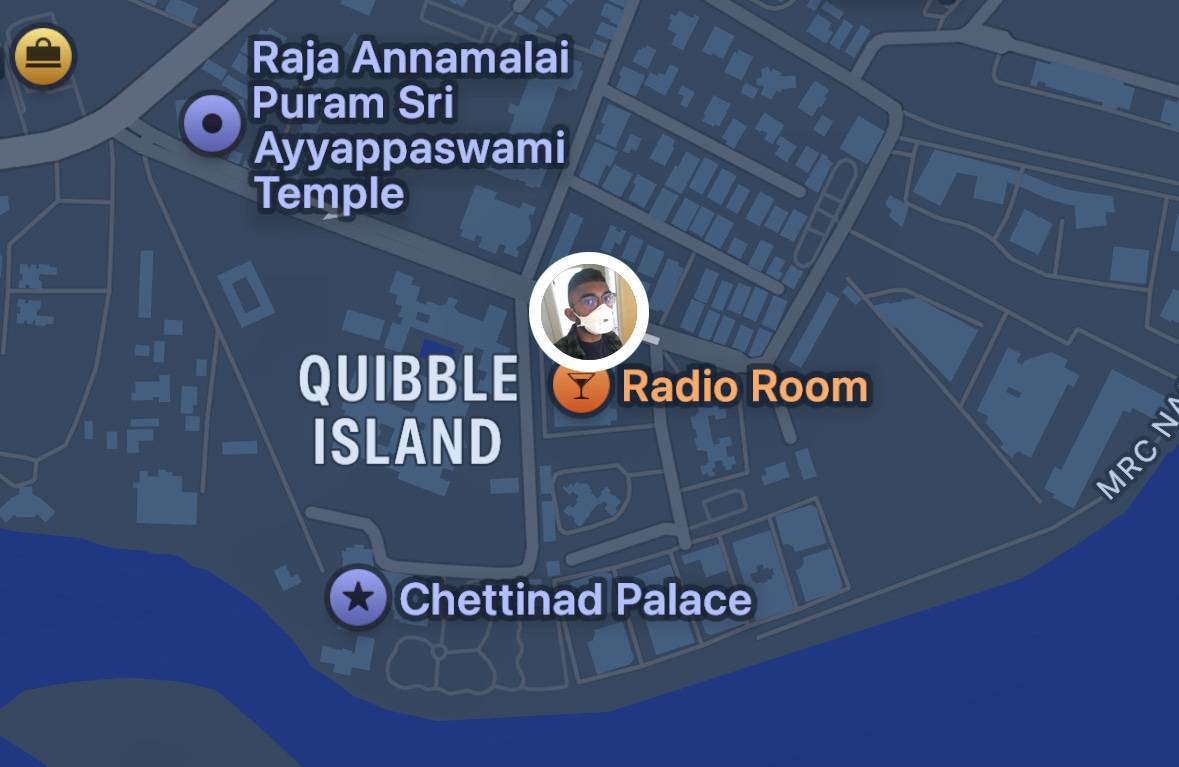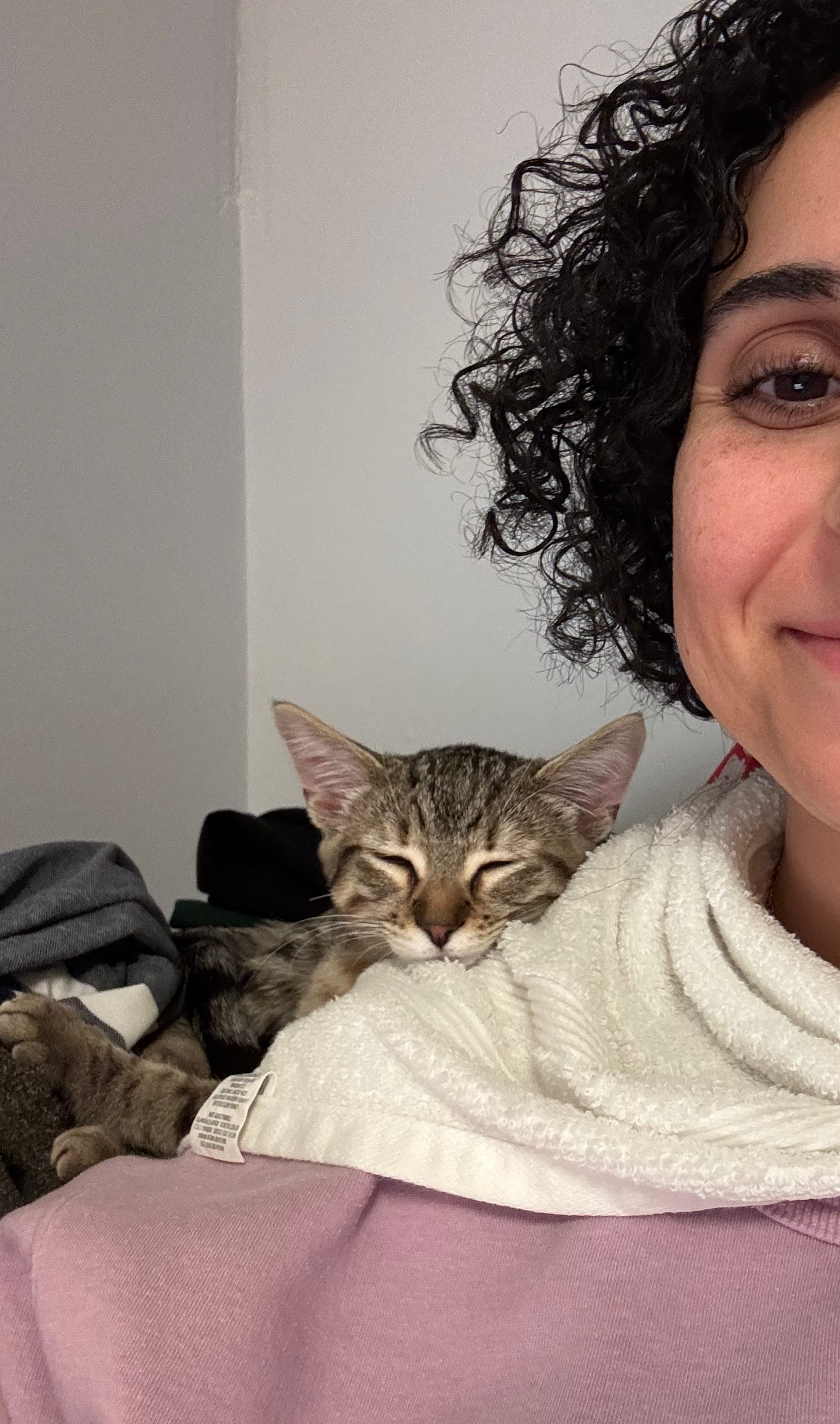We should all be able to lie to each other
i used the "lying is the most fun a girl can have" title too early :|
The sociologist Erving Goffman is perhaps best known for his dramaturgical model of social interaction: Any given face-to-face interaction is a form of performance. We act, take on roles, and use scripts and props. We present ourselves a certain way to some audiences, a different way to others. Goffman was doing a kind of sociology in the 1960s that would never have cut it today in terms of rigor or method — He would simply watch some people, and come up with some idea. Like, huh, isn’t it weird how people act like this in this context? And then he would write it up and everyone would clap.
Goffman’s ideas of dramaturgy in social interaction seem obvious to us today, in part because his work is extraordinarily influential — not only in sociological scholarship, but also in popular discourse on human behavior and self-awareness. Of course we perform for each other! The person you are at your job is not quite the same person you are with your family is not quite the same person you are at the coffeeshop. We change characters and roles depending on the scenes in which we find ourselves. What I find most compelling about Goffman’s work is how he keenly identifies this performative behavior, notes its ubiquity, and turns it into an mere facet of social life. He does not moralize performance; pretending and performing are not disingenuous sins, nor are they virtues. They are just tools for massaging our way through the social frictions of everyday life.
I am thinking about Goffman a lot these days because I’ve been working with colleagues on a small paper about what his ideas of “face-saving” can tell us about tech-mediated interactions.1 Face-saving, as Goffman describes it, is an aspect of performance you engage in when you feel you might have “lost face,” or eroded your social value in others’ eyes. When we sense we might be doing something embarrassing or inappropriate, we often do something else to try to repair the situation. We apologize. We cover our mouths with tissues. We say the email must have gone to our spam.
Face-saving may not always involve lying, but it often does. As I find in my own interviews with frontline retail workers on how self-checkout is changing their jobs,2 cashiers will often blame the self-checkout machine for making a mistake that interrupted a customer’s transaction — even if the issue was in fact due to customer theft or incompetence. The cashier tries to help the customer save face, they are also saving face themselves: They don’t want the customer to think they’re spying on them, or that they’re a cop accusing them of theft. So they ally themselves with the customer, against the technology. It’s important to know that cashiers do this, because retailers are also implementing some systems (like video playback of a bad scan) that can make it harder for workers to do this kind of scapegoating. Ok. Enough about my job.
We might instinctively feel that lying is less offensive in an economic context. In economic life, after all, the nature of our relationships are much more transparently transactional than in personal, intimate social relations, like friendship, family, or romantic partnership. In a store or at your job, the incentives are clearer: I have something you want, you have something I want, and we will both do and say certain things to reach our aims. This is overly simplistic, obviously, but it is the underpinning logic of capitalistic life.
Intimate life, however, is far more complex. Our closest interpersonal relationships involve much more entangled and obfuscated logics, and can be much trickier to navigate. Lying in a friendship or relationship is, broadly, construed as a massive violation of trust. If we were true friends, you would just tell me the truth.
In her recent essay “On the Grid,” the economist and poet Zoe Hitzig links the normalization of consumer surveillance to that of interpersonal surveillance:
“Where we once guarded our control over personal information, we now give up control not just freely but even tenderly, monitoring and being monitored by loved ones through social media platforms like BeReal and location-sharing apps. It’s a strange form of Stockholm syndrome for the surveillance age — we love, and love with, the tools of our captors. Resigned to the Big Tech companies recording our every move, we’ve invited friends, family, and partners to join them in watching us. We’ve begun to celebrate surveillance as a form of intimacy.”
Hitzig homes in on location sharing — whether via Life360, Snap Map, or Find My — as a casual intrusion into one’s privacy, disguised as honesty and intimacy. If we’re so close, why can’t I have your location? Don’t you trust me? As Hitzig notes, having each others’ locations can be for safety, but it can also be for convenience or fun: I may want to know who’s nearby if I want to hang out. I want to know how far away you are so I know when to head out. In some cases, I want to just look at the map and imagine what you might be up to over there, in those little coordinates. Enjoying your morning coffee at Dunkin? Staying at your parents’ house this weekend? Quibbling on Quibble Island?
While I have a few of my friends’ locations, I have historically annoyed other friends by refusing to share my location on Find My indefinitely. (Hitzig describes similarly being “teased for pushing against Find My and for other practices […] that I like to think of as basic digital hygiene.”) I sympathize with the frustration: It is super convenient to coordinate plans when you have someone’s location constantly. It is also way less convenient for them to lie.
I lie often enough, though rarely to my closest friends. (Or am I just saying this to get you off of my trail?) Nothing crazy, just what I think are innocuous, “face-saving” lies. That that off-color joke didn’t bother me that much, that your boyfriend is nice and we all like having him around.3 That I have a headache and can’t come to the party. That I missed your message, that the email went to spam, and that I’ve already left my house (I just got out of the shower).
Nearly everyone lies like this — perhaps some would call these white lies — to save themselves and others from unnecessary confrontation, conflict, honesty,4 and hurt. These kinds of lies often work but sometimes obviously backfire (consider: the email recipient that cried ‘spam’). But regardless of whether or not they wind up hurting others, contemporary interpersonal surveillance makes it remarkably difficult to even choose to lie: If you’re online enough, everything you do and say can be cross-checked. Did I send a tweet from bed when I said I was going to sleep? Did I post a BeReal from my apartment when I said I was at my parents’ house and couldn’t hang? Where’s your location on Find My, at the apartment of the guy you swore off?
I have stood fairly firm in my anti-Find My convictions, sharing location only temporarily with certain people under certain circumstances. But I otherwise find this kind of surveillance suffocating, because I don’t trust many people to avoid over-narrativizing signals out of what’s likely just noise. This lack of trust is, first and foremost, rooted in my own habit of over-narrativization, and the way I (and others) talk of cross-checking their friends’ whereabouts, “catching” them in these white lies. We obviously only have the data these systems output for us, not a whole story. Perhaps there was a change of circumstances that changed the veracity of what I told you before! Perhaps I have made a series of prioritizations in my life that meant I had to make hard decisions about what I was fit to do at the time. Retroactively explaining our in-the-moment decisions isn’t easy; incrimination is far easier.
Many of these tools elicit questions about the precise level of trust that we have in one another. They cut both ways: If you trust me, why won’t you let me see what you’re doing all the time? Well if you trust me, why do you need to see where I am at all times? And when it comes to the over-narrativization: You don’t trust me to not jump to conclusions?5 You can see a prickly sort of social arrangement forming in this strawman convo I’ve invented (<3), one in which the goalposts of intimacy and trust depend on our willingness to make our every movement digitally legible. One in which we perhaps hardly trust each other at all.
Normalizing this degree of intimate surveillance erodes interpersonal trust, but it also harms our personal and moral self-development. Regardless of whether you believe lying is a necessary part of healthy human social life (I obviously do), it is dangerous that these kinds of tools deny us the choice to lie in the first place. Okay, not denial; but they do make it far more difficult to lie. Many digital tools that aim to control and enforce behavior engage in what the late law and technology scholar Ian Kerr calls the “automation of virtue.” (His book chapter on the topic is one of my all-time favorites.) Kerr argues that “digital locks” (e.g. digital rights management software that makes it impossible to pirate content) harm us as moral actors. He writes, “a successful, state sanctioned, generalized deployment of digital locks actually impedes the development of moral character by impairing people’s ability to develop virtuous dispositions, thereby diminishing our well-being and ultimately undermining human flourishing. It creates something that I shall call a ‘moral disability.’” To pull from Kerr’s example, you could choose to return a VHS to a video store late and pay the fee. You could decide never to return it at all and face a series of frightening letters in the mail. Or you could return it on time, and rewind it to boot :) Online rental (and associated anti-piracy software) removes this decisionmaking process altogether — automating virtue, and depriving us of the ability to face decisions that can build our moral character.
Interpersonal surveillance is not quite the same as the digital locks that Kerr describes, but it serves a similar purpose— that of automating virtue, in our case by internalizing surveillance. Hitzig, citing Sophie Haigney’s flitting piece in The Paris Review, gives another example, which I love because it’s somewhat extreme:
“In her playful discussion of Find My, Haigney reports, ‘someone above the age of forty asked me recently how anyone in my generation has affairs, if we all know where others are at any given time.’ Affairs are not the only kind of secret to be had in intimate relationships, of course: some other common secrets have to do with gambling, drugs, alcohol, frivolous shopping, illicit friendships, delicate health, or financial issues. Whatever it is, our adoption of surveillance as intimacy makes it harder to keep the activity or fact secret, and indeed tells us we are wrong to do so.”
Are we so wrong to keep secrets? What do we lose when nobody can have affairs? When we’re encouraged to share so much, it seems like we can’t even start the debate with ourselves. The answer is that you can’t. Doesn’t matter if you shouldn’t.
I am sounding a bit extreme; obviously people still keep secrets, people still have affairs. One of my friends and her friend has (thanks to a horrible man’s mother’s avid Facebook posting) been uncovering an actually unbelievable number of huge lies told by a man she (my friend’s friend) was sleeping with. But, of course, the same tools we use to reveal others’ wrongdoing can just as easily come back to bite us.6 Lying and secrets are just as important for those who have been wronged, or for those who are marginalized. The scholar Danielle Citron describes this as part of a right to “intimate privacy,” which enables free expression, speech, and personal development. How else are we supposed to discover who we are, our desires, and our politics, without fear?
In an episode of the latest season of The Sex Lives of College Girls, a new character named Kacey7 who sucks-for-now keeps the fact that she broke up with her high-school boyfriend a secret from her mom, who is visiting for parents’ weekend. Her mother is played as an overbearing, socially conservative southern woman. Kacey keeps her breakup a secret because she knows her mother will be upset.
At the girls’ big parents’ weekend dinner, things come to a head. When they escape to the bathroom to confab, Kacey thanks the other girls for keeping her breakup a secret from her mom. “I feel bad because I never lie to her,” she says.
Bela, the notoriously horny and uncouth roommate, answers: “Ever? I lie to my mom all the time.” The rest of the girls rattle off lies they told their moms ranging from how porn ended up on the family desktop to how many times they fed the family dog. The point being: Everyone lies to their mom, because moms don’t always understand.
Kacey, who I must emphasize sucks-for-now, responds confidently: “I guess I’m just closer to my mom than you guys are to yours!” :)
some things <3
im not proofreading this hope there are no insane typos. im watching my cousin’s kitting today and she keeps jumping on my keyboard and biting my screen so it could be crazy up there. sorry
i lowkey might be allergic to cats
new cousin dropped btw. i love my new cousin so much, im obsessed with him. it is sooooo crazy to me that he is learning about the world in realtime from a blank slate. and it made me think about how we all basically start from nothing and go from there. that’s legit sooooooo crazy. ahahahahaaaaa
ok im thinking of doing a ‘some things’ roundup again before the new year so actually im limiting what i put down here. hope u dont mind 2 emails in 1 week perv. frankly i dont even know what i have to share. have i even been watching youtube videos? idk.
so i guess that’s all for now
xo
PM
Everyone please cross your fingers for me and/or pray for an acceptance
lol free plug for my paper :[
if you are reading this i’m not talking about your boyfriend. im not talking about anyone’s boyfriend
The radical opposite of the Dalio-esque radical transparency :-) Point being that honesty can be quite cruel. We adjust everything we say according to the audience
Wanted to get into Daniel Solove’s “nothing to hide fallacy” but it didn’t fit, so I’m linking his book here.
I want to nod to Karen Levy’s paper on “Intimate Surveillance” here, which overlaps partly with another, well developed area of scholarship on technologically-mediated intimate-partner violence
she replaces Renee Rapp who has left the show to pursue her dream of making extremely mid songs and posting thirst traps for bi girls who only date men — as many of you know I do not really fw Renee Rapp’s whole vibe and never have








face saving is when you say my invite to t*** l** j**** went to spam
I don't know why or how, but this may be one of my favorite things I've read this year (maybe that says more about what I'm reading...???). Thinking of secrets, I think you'd love "The lady with the little dog" by Anton Chekhov, where he explores (literally) an affair. This is actually my favorite short story of all time. Workshop question: what would that story look like in 2025? :D